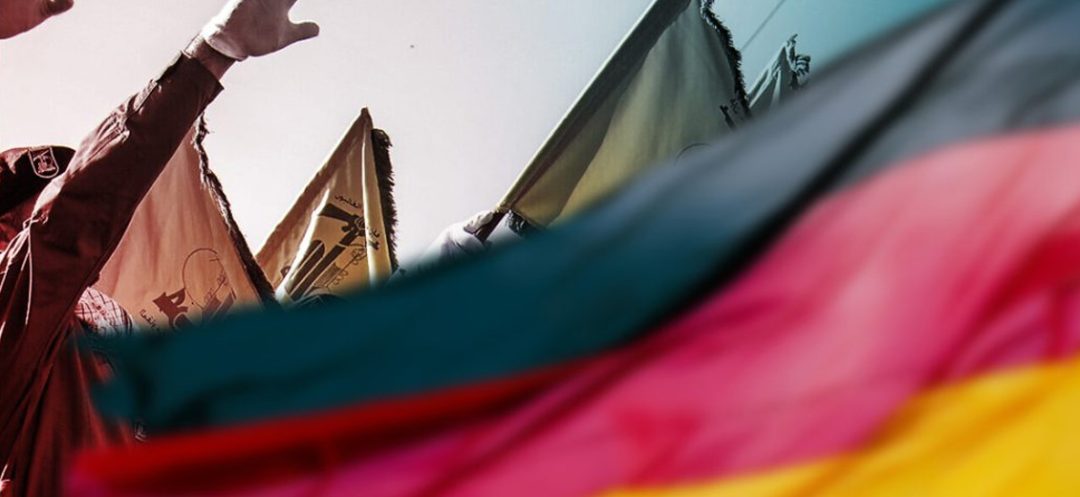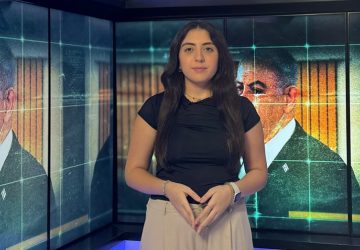Listen to the article
During her two-day visit to Beirut this week, German Foreign Minister Annalena Baerbock was not received by the Speaker of the Lebanese Parliament, Nabih Berri. What was Berri’s excuse? “A scheduling conflict,” although Baerbock’s visit to Lebanon is part of a tour she is conducting in the Middle East to try to defuse the escalating military conflict at the border between Hezbollah and Israel.
Is it simply a matter of timing, or a deliberate decision by Berri to send a clear message to the Germans, with whom relations, once “friendly,” have deteriorated over the years? To try to understand this, This is Beirut has provided an overview of the relationship between the pro-Iranian faction and Berlin.
Berlin: Ground for Illegal Activities
Fleeing the war in Lebanon, many Lebanese Shiites, including Hezbollah supporters, settled in Berlin starting in the 1980s. A decade later, in the mid-1990s, a tacit agreement was allegedly reached between Chancellor Helmut Kohl’s government and Hezbollah. Since then, Berlin has turned a blind eye to the presence and “trafficking activities” of the group. In exchange for this, the group promised not to commit attacks on the host’s territory. Over the years, the number of Hezbollah supporters increased significantly. In 2018, German intelligence services and the Federal Office for the Protection of the Constitution estimated the number of members affiliated with the group to be around 1,050, as mentioned in a report published that same year.
For a long time, German soil provided Hezbollah with a space from which it could carry out its economic activities, achieving a certain independence from its sponsor, Iran. Money laundering, racketeering, fundraising, drug trafficking… organized crimes, which are the main non-state revenue sources for Hezbollah, multiplied in a country that tolerated such maneuvers for many years. Although not widely publicized, Hezbollah’s presence has always been closely monitored by German intelligence services.
Politically and socially, the pro-Iranian group has also been constantly active in Berlin. By the recruitment of sympathizers and organizing demonstrations calling for the destruction of Israel, particularly during Al-Quds Day, which has been regularly celebrated in Germany since 1996, Hezbollah has managed to extend its operational potential there through its supporters who engage in illegal activities serving the group’s interests, under the guise of religious and cultural associations. Some of these include the Islamic Center of Hamburg, the Imam Reza Islamic Center in Berlin-Neukölln, the Imam Mahdi Center in Munster, among others.
Germany, Mediator Between Hezbollah and Israel
In 1996, Germany embarked on a complex mission: mediating between Israel and Hezbollah. This intermediary role has allowed, on several occasions, the exchange of prisoners and bodies between the two protagonists. It is recalled that in 1996, 132 bodies of anti-Israeli fighters were returned and 45 Lebanese prisoners were released from Khiam prison, managed in a then Israeli-occupied southern Lebanon by the South Lebanon Army (SLA). In exchange, Hezbollah agreed to release 17 SLA militiamen and handed over the bodies of two Israeli soldiers to the Hebrew state. This operation, prepared three months in advance, would not have been possible without the direct intervention of Germany and specifically its mediator, Bernd Schmidbauer.
Three years later, in 1999, Berlin once again facilitated the transfer of 13 Lebanese detainees by Israel. German mediation was reactivated in 2004, when a “historic” exchange of prisoners and bodies was finalized after four years of negotiations initiated by German intelligence services. 32 Hezbollah supporters, 400 Palestinians labeled “terrorists” by Tel Aviv, and 59 bodies were handed over in exchange for an Israeli businessman, Elhanan Tennenbaum, and the bodies of three Israeli soldiers. In 2008, following the war between the two protagonists, a new “swap,” negotiated by a German intelligence officer, allowed for the mutual return of respective bodies.
A Major Turning Point in Relations
In 2020, after some 38 years of effective presence in Germany and under American and Israeli pressure, the Berlin government finally took a stand. Hezbollah was designated as a terrorist organization, and its activities were banned on German soil. “Several police actions were carried out in various regions against establishments linked to the movement,” said the spokesperson for German Interior Minister, Horst Seehofer, at the time.
Relations continued to deteriorate when, following the October 7 attack, Berlin engaged in dismantling a Hezbollah support network. 54 properties associated with the group were raided, including the Islamic Center of Hamburg (IZH), suspected of supporting Hezbollah by exerting a “strong influence,” particularly anti-semitic and hostile to Israel, on German mosques and associations.
By limiting, as best as it could, Hezbollah’s activities on its territory, has Germany found its place on the “blacklist” of Hezbollah and its ally Nabih Berri, leader of the Amal movement?
*The SLA was a Lebanese militia that operated with the support of the Israeli Army after Israel’s 1978 invasion of southern Lebanon.





